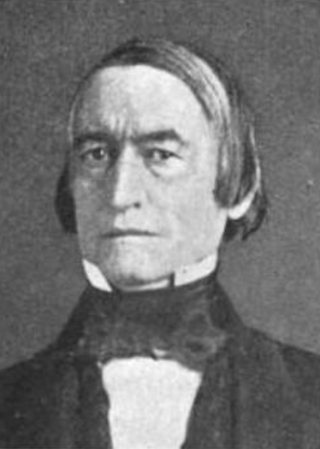Related Research Articles
Year 105 BC was a year of the pre-Julian Roman calendar. At the time it was known as the Year of the Consulship of Rufus and Maximus and the Sixth Year of Yuanfeng. The denomination 105 BC for this year has been used since the early medieval period, when the Anno Domini calendar era became the prevalent method in Europe for naming years.

This article concerns the period 109 BC – 100 BC.
Marcus Aemilius Scaurus was a Roman statesman who served as consul in 115 BC. He was also a long-standing princeps senatus, occupying the post from 115 until his death in late 89 or early 88 BC, and as such was widely considered one of the most prestigious and influential politicians of the late Republic.
Gaius Aurelius Cotta was a Roman statesman, orator, priest, and Academic Skeptic; he is not to be confused with Gaius Aurelius Cotta who was twice Consul in the 3rd century BC.
Publius Rutilius Rufus was a Roman statesman, soldier, orator and historian of the Rutilia gens, as well as a great-uncle of Gaius Julius Caesar. He achieved the highest political office in the Roman Republic when he was elected consul in 105 BC.

Rufus W. Peckham was an American lawyer and jurist who served as an Associate Justice of the U.S. Supreme Court from 1895 to 1909, and is the most recent Democratic nominee approved by a Republican-majority Senate. He was known for his strong use of substantive due process to invalidate regulations of business and property. Peckham's namesake father was also a lawyer and judge, and a U.S. Representative. His older brother, Wheeler Hazard Peckham (1833–1905), was one of the lawyers who prosecuted William M. Tweed and a failed nominee to the Supreme Court.

The First Man in Rome is a 1990 historical novel by Australian author Colleen McCullough, and the first in her Masters of Rome series.
Quintus Mucius Scaevola "Pontifex" was a politician of the Roman Republic and an important early authority on Roman law. He is credited with founding the study of law as a systematic discipline. He was elected Pontifex Maximus, as had been his father and uncle before him. He was the first Roman Pontifex Maximus to be murdered publicly, in Rome in the temple of the Vestal Virgins, signifying a breakdown of historical norms and religious taboos in the Republic.
Publius may refer to:

Aurelia was the mother of the Roman general and statesman Julius Caesar.
Rufus is one of the most common of the ancient Roman cognomina.
Marcus Livius Drusus was a Roman politician and reformer. He is most famous for his legislative programme during his term as tribune of the plebs in 91 BC. During his year in office, Drusus proposed wide-ranging legislative reforms, including offering the citizenship to Rome's Italian allies.

Charles Byron Bellinger was a United States district judge of the United States District Court for the District of Oregon in Portland, Oregon. A native of Illinois, he also served as a state circuit court judge in Oregon, fought in the Modoc War in 1873, and was a newspaper editor. Politically, he previously served in the Oregon Legislative Assembly and as clerk to the Oregon Supreme Court.

Quintus Pompeius Rufus was a consul of the Roman Republic in 88 BC. His colleague in office was the future dictator Sulla.
The gens Rutilia was a plebeian family at ancient Rome. Members of this gens appear in history beginning in the second century BC. The first to obtain the consulship was Publius Rutilius Rufus in 105 BC.
The Scipionic Circle, or the Circle of Scipio, was a group of philosophers, poets, and politicians patronized by their namesake, Scipio Aemilianus. Together they would discuss Greek culture, literature, and humanism. Alongside their philhellenic disposition, the group also had a more humane Roman foreign policy. The term was first derived during the 19th century and ubiquitously adopted by scholars of the early 20th century. The collection of members varied during its existence, from 15 names of the early period, to 27 in its middle to 10 in its final.
Ephraim Geoffrey Peyton was a judge of the High Court of Errors and Appeals of Mississippi from 1868 to 1870 and a justice of its successor, the Mississippi Supreme Court, from 1870 to 1876 including as chief justice.

Cotesworth Pinckney Smith was an associate justice of the Supreme Court of Mississippi from 1832 to 1838, and again in 1840, and was chief justice from 1849 to 1861, returning to Associate Justice status from then until his death in 1862.
Edward Turner was a state legislator, public official, and served as Justice of the Supreme Court of Mississippi from 1824 to 1832, and again from 1840 to 1843.
References
- 1 2 3 4 "Death of Gen. Pray", The Weekly Mississippian (December 27, 1839), p. 2.
- 1 2 Leslie Southwick, Mississippi Supreme Court Elections: A Historical Perspective 1916-1996, 18 Miss. C. L. Rev. 115 (1997-1998).
- 1 2 3 4 Thomas H. Somerville, "A Sketch of the Supreme Court of Mississippi", in Horace W. Fuller, ed., The Green Bag , Vol. XI (1899), p. 508.